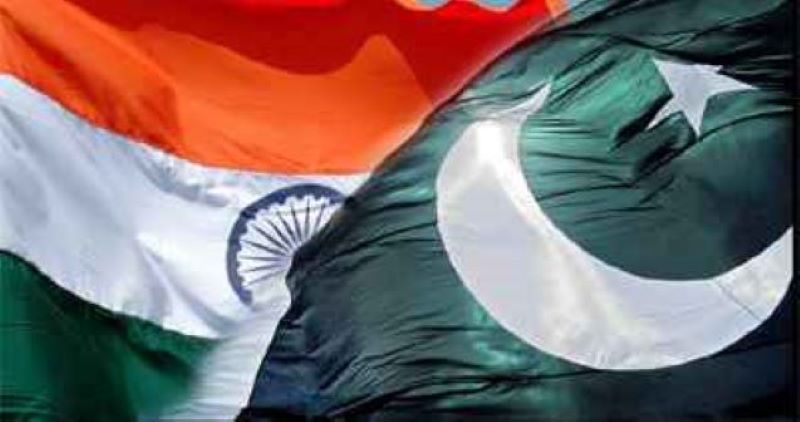In recent years, the relationship between India and Pakistan has witnessed a significant deterioration, marked by the suspension of bilateral trade, tightening of visa restrictions, a surge in hostile rhetoric, and a deepening trust deficit between the leadership of both countries. Despite their shared history and cultural ties, India and Pakistan remain locked in a cycle of mutual suspicion and animosity, with little progress toward normalization. Apart from religious intolerence and fundementalism, several other factors have contributed to this downward spiral in relations, and understanding these dynamics is crucial for assessing the prospects of peace in South Asia.
Suspension of Trade Relations
One of the most visible signs of the deteriorating Indo-Pak relations is the suspension of bilateral trade, which has further strained economic ties and deepened mistrust. In August 2019, Pakistan suspended all trade with India following New Delhi’s decision to revoke Article 370 of its Constitution, which granted special status to the disputed region of Jammu and Kashmir. Pakistan viewed this move as a violation of United Nations resolutions and bilateral agreements, while India argued that it was an internal matter aimed at integrating Kashmir more fully into the Indian Union.
The suspension of trade has led to significant economic losses for both countries, particularly for Pakistan, which relied on cheaper imports from India for various commodities, including pharmaceuticals, cotton, vegetable and chemicals. Similarly, Indian exporters have faced challenges accessing the Pakistani market, traditionally a destination for products such as tea, textiles, and spices. The lack of trade not only undermines economic opportunities but also diminishes a critical channel for dialogue and trust-building between the two countries.
Tightening of Visa Restrictions
In addition to halting trade, both India and Pakistan have imposed stricter visa restrictions on each other’s citizens, affecting tourism, business, civil society and people-to-people contacts. These restrictions have stymied cultural exchanges and academic collaborations, which are vital for fostering goodwill and mutual understanding. The visa regime has become highly restrictive, with limited categories and frequent rejections, reflecting the heightened security concerns and mutual distrust between the two nations.
The impact of these restrictions extends beyond economics, as it curtails family visits, medical tourism, social and cultural contacts and even pilgrimage to religious sites of significance in both countries. The suspension of cross-border travel reduces the opportunities for dialogue and perpetuates stereotypes, further entrenching hostilities between both countries.
Hostile Rhetoric and Media Narratives
Hostile rhetoric and inflammatory statements from political leaders and media outlets on both sides have also played a significant role in the deteriorating relations. Religous elements and Nationalist narratives often dominate the discourse, portraying the other country as an existential threat. This rhetoric not only exacerbates tensions but also fosters a climate of hate and distrust where meaningful dialogue becomes difficult.
In India, the ruling Bharatiya Janata Party (BJP) has taken a hardline stance against Pakistan, framing it as a supporter of terrorism and a destabilizing force in the region. This narrative resonates with the domestic electorate, particularly in the wake of high-profile incidents such as the Pulwama attack in 2019, where 40 Indian paramilitary personnel were killed in a suicide bombing claimed by Pakistan-based militant group Jaish-e-Mohammed. In response, India conducted airstrikes on a purported terrorist camp in Balakot, Pakistan, further escalating tensions between the two nuclear-armed neighbors.
Conversely, in Pakistan, the government, led by the Pakistan Tehreek-e-Insaf (PTI) party until 2022, the subsequent caretaker government, and even the present government led by PML-N has accused India of human rights violations in Kashmir and of sponsoring insurgent activities in Pakistan’s Balochistan region. This hostile rhetoric reinforces public perceptions of India as a threat and legitimizes the government’s own hardline stance.
Trust Deficit Between Leadership
At the core of the deteriorating relations is a profound trust deficit between the leadership of both countries. The lack of direct communication and consistent engagement has led to a growing mistrust, making it difficult to address contentious issues diplomatically. The absence of high-level bilateral meetings, such as foreign minister-level talks, reflects the unwillingness of both sides to engage in constructive dialogue. The growing attacks on miniority muslims in eastern and central Indian states under the leadership of BJP is further complicating the state of mistrust.
India has consistently demanded that Pakistan take concrete action against terrorist organizations operating from its soil, particularly those targeting India. Pakistan, on the other hand, has sought international mediation on the Kashmir issue and has criticized India for its alleged human rights violations in the region, particularly in Indian adminstrated Kashmir. These divergent positions have led to a deadlock, with both sides accusing each other of bad faith and intransigence.
The trust deficit has also been compounded by incidents such as the Kulbhushan Jadhav case, where Pakistan arrested and sentenced an Indian national to death on charges of espionage, and India’s repeated allegations of cross-border terrorism. Such incidents have only deepened suspicions, making it increasingly difficult for the leadership of both countries to find common ground.
Geopolitical Factors and External Influences
Geopolitical factors and the influence of external powers have further complicated the Indo-Pak relationship. Both countries have strategic alliances that influence their foreign policy decisions. India’s growing partnership with the United States, particularly in the context of the Indo-Pacific strategy, is viewed with suspicion by Pakistan, which has traditionally relied on its alliance with China. The U.S.-China rivalry and the shifting geopolitical landscape have therefore impacted Indo-Pak relations, with both countries aligning with their respective partners to secure their strategic interests.
Additionally, Afghanistan’s instability post-Taliban takeover has added another layer of complexity. Pakistan sees Afghanistan as part of its strategic depth, while India has invested heavily in Afghan infrastructure and development, leading to conflicting interests in the region. The Taliban’s return to power has raised concerns in India about Pakistan’s influence in Kabul and the potential for increased militant activity in Kashmir. However, the increasing insurgency by the TTP in Pakistan making the situation more complex.
Conclusion
The deteriorating Indo-Pak relations are rooted in a complex web of historical grievances, geopolitical considerations, and domestic politics. The suspension of trade, tightening of visa restrictions, hostile rhetoric, and deep trust deficit have created a hostile environment that hinders diplomatic efforts and dialogue. While both countries stand to gain from improved relations, the path to peace is fraught with challenges and requires strong political will, trust-building measures, and sustained engagement from both sides. The future of Indo-Pak relations will largely depend on whether the leadership of both countries can overcome their differences and work towards a more stable and peaceful South Asia.





